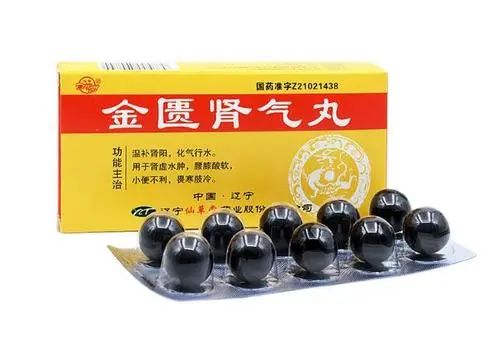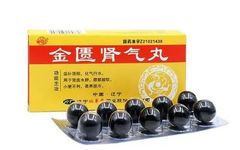When visiting a TCM doctor, they often mention Qi deficiency.Qi deficiency can be categorized into heart Qi deficiency, spleen Qi deficiency, lung Qi deficiency, and kidney Qi deficiency. Today, I will introduce four Qi-boosting TCM formulas.1. Yu Ping Feng Granules — Tonify Lung QiYu Ping Feng Granules are suitable for those who frequently catch colds and have recurrent colds.People who are prone to colds often have lung Qi deficiency, which may also be due to spleen Qi deficiency, but Yu Ping Feng Granules can tonify both.There is a layer of Qi on the surface of the body, called Wei Qi, which protects the body from external pathogens. Wei Qi is derived from the refined essence of food and is distributed throughout the body by the lungs. In individuals with lung Qi deficiency, Wei Qi struggles to reach the surface, leaving the pores unprotected and in an open state, allowing external wind and cold pathogens to invade, leading to the most common ailment: the common cold. Additionally, those with lung Qi deficiency tend to sweat easily; even slight activity can cause profuse sweating.In Yu Ping Feng Granules, Fang Feng (Siler) can dispel wind, while Huang Qi (Astragalus) and Bai Zhu (White Atractylodes) can tonify the Qi of the spleen and lungs, establishing a defensive layer on the surface of the body to prevent external wind and cold from entering while retaining internal fluids.This medicine should not be taken during a cold, as Huang Qi has a protective effect that closes the pores. Taking it after catching a cold is like closing the door to an intruder; at this time, one should release the exterior and open the pores to expel the pathogens. Therefore, it should not be consumed once a cold has developed.Applicable Population:Those who frequently catch colds, experience excessive sweating, or catch colds with seasonal changes; it can serve as a preventive measure for spring allergies.2. Bu Zhong Yi Qi Wan — Tonify Spleen and Stomach“Zhong” refers to the spleen and stomach, and “Bu Zhong” means to tonify the spleen and stomach.The main characteristic of spleen Qi deficiency is lethargy; when the spleen is deficient, it affects the limbs, leading to fatigue and a desire to lean against something. Walking becomes sluggish.Individuals with spleen Qi deficiency may experience abdominal distension and diarrhea. Abdominal distension occurs because the spleen struggles to transform food, while diarrhea results from the inability to retain what has been ingested, causing it to pass through.Severe spleen Qi deficiency is referred to as Qi sinking, or middle Qi sinking. This Qi supports the complexion and the five internal organs. As one ages, facial muscles may become slack, while children have firm and plump muscles due to sufficient blood and Qi. Once Qi is significantly depleted, the stomach, uterus, large intestine, and small intestine may also sag. The Huang Di Nei Jing states, “For those who sink, lift them up.” Bu Zhong Yi Qi Wan not only replenishes Qi but also lifts it up.Applicable Population:Those who are easily fatigued, speak weakly, or experience abdominal distension or diarrhea after eating, as well as individuals with prolapse or sagging organs.3. Sheng Mai Yin — Tonify Heart QiSome people are lively in winter but feel extremely fatigued in summer, which is a typical sign of heart Qi deficiency.Summer heat is closely related to the heart and depletes heart Qi, making it even worse for those with heart Qi deficiency. In summer, the hot weather leads to increased sweating, and sweat is considered the fluid of the heart; excessive sweating can deplete heart blood, resulting in both Qi and Yin deficiency. When the heart lacks both Qi and blood, it can lead to restlessness, and individuals with heart Qi deficiency may experience palpitations and irregular heartbeats upon examination at the hospital.At this time, Sheng Mai Yin is the most suitable remedy.Sheng Mai Yin can tonify both Qi and Yin; Ren Shen (Ginseng) can tonify Qi, Mai Dong (Ophiopogon) can tonify Yin, and Wu Wei Zi (Schisandra) can ensure that the essence being replenished is not lost, preventing leakage and strengthening the heart vessels.Applicable Population:Those with both Qi and Yin deficiency, especially in summer when they feel low in energy, sweat easily, and experience fatigue, dry mouth, palpitations, and shortness of breath. 4. Jin Gui Shen Qi Wan — Tonify Kidney QiJin Gui Shen Qi Wan primarily tonifies kidney Qi.When thinking of kidney deficiency, one may consider kidney Yin deficiency or kidney Yang deficiency.The most notable feature of kidney Qi deficiency is shortness of breath or insufficient Qi. The kidneys are responsible for storage, and this function is primarily achieved through kidney Qi. Individuals with kidney Qi deficiency often experience leakage, such as frequent urination, diarrhea, nocturnal emissions in men, and clear, copious vaginal discharge in women. The kidneys govern the bones, and those with kidney Qi deficiency may feel weakness in the lower back and knees; the kidneys open to the ears, and individuals with kidney Qi deficiency may experience constant ringing in the ears. The kidneys manifest in the hair, and those with kidney Qi deficiency may experience significant hair loss.The approach to tonifying kidney Qi and kidney Yang is fundamentally similar; kidney Qi deficiency and kidney Yang deficiency share many similarities. Kidney Yang deficiency occurs on the basis of kidney Qi deficiency, often accompanied by cold symptoms. The treatment involves using Liu Wei Di Huang Wan to nourish Yin and employing Gui Zhi (Cinnamon Twig) and Fu Zi (Aconite) to tonify Yang, but the dosage should not be excessive, as too much can exacerbate Qi deficiency symptoms. Combining both approaches leads to the essence of Jin Gui Shen Qi Wan.Applicable Population:Those who experience fatigue, shortness of breath, lower back pain, and dizziness or tinnitus. If both spleen and kidney deficiencies are present, take Bu Zhong Yi Qi Wan in the morning and Jin Gui Shen Qi Wan in the evening. If experiencing heat after taking, consume with light salt water before meals.Note: The above is for reference only. Due to individual differences in constitution, please consult a physician for guidance.
4. Jin Gui Shen Qi Wan — Tonify Kidney QiJin Gui Shen Qi Wan primarily tonifies kidney Qi.When thinking of kidney deficiency, one may consider kidney Yin deficiency or kidney Yang deficiency.The most notable feature of kidney Qi deficiency is shortness of breath or insufficient Qi. The kidneys are responsible for storage, and this function is primarily achieved through kidney Qi. Individuals with kidney Qi deficiency often experience leakage, such as frequent urination, diarrhea, nocturnal emissions in men, and clear, copious vaginal discharge in women. The kidneys govern the bones, and those with kidney Qi deficiency may feel weakness in the lower back and knees; the kidneys open to the ears, and individuals with kidney Qi deficiency may experience constant ringing in the ears. The kidneys manifest in the hair, and those with kidney Qi deficiency may experience significant hair loss.The approach to tonifying kidney Qi and kidney Yang is fundamentally similar; kidney Qi deficiency and kidney Yang deficiency share many similarities. Kidney Yang deficiency occurs on the basis of kidney Qi deficiency, often accompanied by cold symptoms. The treatment involves using Liu Wei Di Huang Wan to nourish Yin and employing Gui Zhi (Cinnamon Twig) and Fu Zi (Aconite) to tonify Yang, but the dosage should not be excessive, as too much can exacerbate Qi deficiency symptoms. Combining both approaches leads to the essence of Jin Gui Shen Qi Wan.Applicable Population:Those who experience fatigue, shortness of breath, lower back pain, and dizziness or tinnitus. If both spleen and kidney deficiencies are present, take Bu Zhong Yi Qi Wan in the morning and Jin Gui Shen Qi Wan in the evening. If experiencing heat after taking, consume with light salt water before meals.Note: The above is for reference only. Due to individual differences in constitution, please consult a physician for guidance.

Recommended Valuable Public Accounts

Follow us first, then save!
The more people see, the more health there is!

For example: Anxi Xiang, Ai Ye (Mugwort), Ai Cao, Fo Shou, Ejiao, Bu Zha Ye, Bai Bian Dou, Bu Guo Zhi, Bo He (Peppermint), Pian Xu, Bie Jia, Bing Pian, Bian Dou, Beng Da Wan, Bei Mu, Bi Xie、 Bai Zhi, Bai Yao Zi, Bai Tou Weng, Bai Xian Pi, Bai Zhu, Chan Tui, Chuan Xin Lian, Ci Wu Jia, Du Huo, Tai Zi Shen, Dang Shen, Du Zhong, Du Jiao Wu Kou, Du Jiao Jin, Dong Kui Zi, Dou Chi Qiang, Dong Gua Zi, Dong Feng Ju, Dou Chi, Dong Gua Pi, Diu Le Bang, Ding Xiang, Di Gu Pi, Di Yu, Dong Chong Xia Cao, Di Fu Zi, Di Lan, Feng Mi, Fang Ji, Fu Long Gan, Fu Xiao Mai, Fan Xie Ye, Xi Ye Gen, Dao Dou Ke, Dang Gui, Da Ye Shuang Yan Long, Dan Zhu Ye, Dan Pi, Da Ye She Zong Guan Da Huang, Huang Qi, Gou Qi, Hai Piao Xiao, Han Shui Shi, Huai Hua, Hua Shi, Han Lian Cao, Huang Yao Zi….. thousands of Chinese herbs…. More
☛ If you have any questions, please leave a message, and we will organize and publish them one by one!
✍ Every “share” you click is a support for herbal culture~ Thank you! ❤

